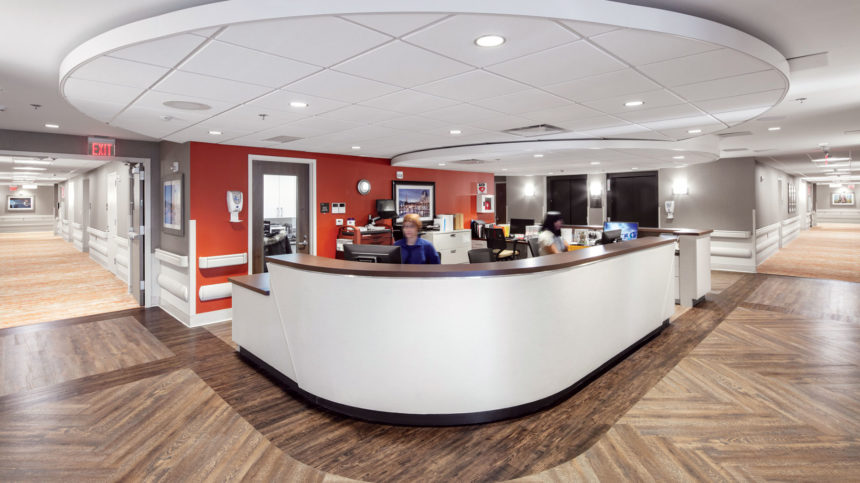
For small- and medium-sized regional operators, undertaking renovations of 1970s- and 1980s-era buildings can be an intimidating process. It requires methodical planning, coordination, expertise, financing and navigation of a bureaucratic maze.
It is a monumental exercise for chains with 10 or fewer facilities because they’re primarily focused on day-to-day operations. So Congress Construction in Danvers, MA, developed its Turn Key Design Build Program for Skilled Nursing Facilities to give these very providers the support they need to get renovations rolling properly.
“The SNF side is populated by some very bright people who are busy managing their operations,” says CEO Bill Nicholson. “They are too focused on their core business to effectively handle anything else.”
Turn Key offers services tailored to each client’s needs. Some want a complete package, such as a southern New Jersey provider that contracted with Congress for site planning, zoning, permits, financing, design, governmental approvals, engineering, construction and interiors.
“We identify where we can add value and, in a sense, become an extension of the long-term care provider’s company,” Nicholson says.
Key questions
“We ask a lot of hard questions of prospective clients related to their vision, their goals and realities,” he says. “What are they trying to accomplish, what does their market demand, what services do they need, what is their target census and what therapies do they want to provide?”
Nursing home construction is complex, with significant costs even before seeking construction financing. Early cost estimates are part of Congress’ service.
Providers, however, remain solely responsible for their operating budgets, which determine their level of debt and whether a proposed project qualifies for HUD or conventional financing.
“This process takes a high degree of analysis and diagnosis — it’s the equivalent of the old carpentry adage: ‘Measure twice, cut once,’” Nicholson says.
Decompression depression
“Decompression,” or reducing per-room census for health and safety reasons, is increasingly in demand among families and officials. Massachusetts, for instance, has proposed a statute addressing minimum room size and eliminating triples and quads. To decompress, some operators would have to surrender bed licenses or build additions.
“Many of the existing mortgages on these facilities don’t allow giving beds back because the beds are part of the potential revenue stream and collateral,” Nicholson says. “Our job is to do a lot of listening and turn it all into a building strategy that works for our clients.”



